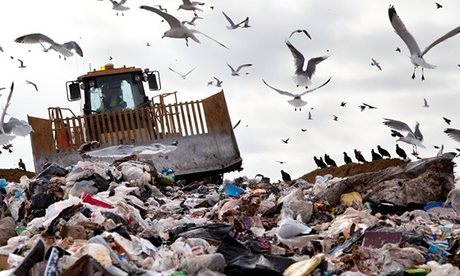Edmonton's a two-time capital city. It's the capital city of Alberta and the oil capital of Canada. As Alberta's oil and gas industry hub, the city's bituminous history undoubtedly inspired the name of its professional hockey team, The Edmonton Oilers.
(Canada owns the
third-largest oil reserves in the world, behind Venezuela and Saudi Arabia, with about 170 billion barrels located as petroleum deposit in the
oil sands of Alberta Province.)
Though recent developments in this city perched along the North Saskatchewan River may invite a new name change to, perhaps, The Edmonton Ethanols?
That's because with the next two years, the curbside trash waiting on Edmonton's streets for pick-up should be destined for a waste-to-biofuels facility instead of a landfill.
The partnership represents one of the first commercial advanced biorefineries in the world.
In 2008, Edmonton collaborated with a waste-to-biofuels and chemicals producer on a pioneering project to construct a biofuel plant that turns municipal solid waste into methanol.
Quebec-based
Enerkem converts non-recyclable municipal solid waste into methanol, ethanol and other widely used chemical intermediates. Biofuels from waste and residual biomass, such as ethanol, provide alternative fuel sources that can gradually replace petroleum in the global fuel pool, and positively impact today’s most pressing energy and environmental issues.
The company's ethanol, which is renewable, non-toxic, water-soluble, highly biodegradable and clean burning fuel, is used as a high-octane oxygenate in gasoline.
Edmonton also built a $40-million, waste-preparation facility specifically to supply feedstock that Enerkem would then turn into ethanol. As such, this fall the facility is adding modules to convert methanol into advanced ethanol.
The enterprise intends to convert nearly 100,000 tons of trash into a component of the gasoline Edmontonians use to fuel their cars. Ethanol, the most popular of all biofuels, represents 76% of global biofuels consumption, according to Enerkem. The company will sell the biofuel and share the profit with the city.
Last August, Enerkem obtained certification from the International Sustainability and Carbon Certification (
ISCC) system for the biomethanol production of its Enerkem Alberta Biofuels full-scale facility.
The designation crowned the biorefinery as the first ISCC certified plant in the world to convert municipal solid waste into biomethanol.
Biofuels used in Europe, such as biomethanol and ethanol, must prove, through third-party certification under an approved certification scheme such as ISCC EU, that they comply with stringent criteria in terms of greenhouse gas savings, sustainability and traceability of the entire supply chain and are compliant with the European Renewable Energy Directive (RED). Under the RED Directive, all EU countries must ensure that at least 10% of their transport fuels come from renewable sources by 2020.
The conversion projection for 2017 is between 60% and 70%. The long-term goal is 90%. Although the facility is fully commissioned, it won't be completely operational until 2018, at the soonest.
Maybe by then, Edmonton's pro hockey team will have a new moniker—The Edmonton Ethanols.




